PDFs to Read or Download
PDFs to Read or Download

Emancipation Hell: The Tragedy Wrought by Lincoln’s Emancipation Proclamation
by Kirkpatrick Sale (2015)
Slavery once existed throughout the Western Hemisphere, but almost everywhere except the United States, it ended peacefully. What is emancipation with no thought or plan for the unprecedented situation to be managed? What is emancipation with no real sympathy or interest in the people freed except their usefulness in controlling and exploiting the conquered South? Perhaps never in history, Kirkpatrick Sale demonstrates, has a benevolent act been so tainted with impure motives and disdain of consequences. Abraham Lincoln has a lot to answer for, says the author. His flawed proclamation doomed Americans to a century and a half of racial conflict and disparity that is still with us.
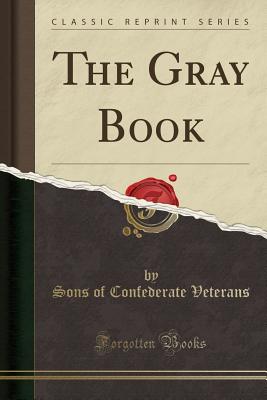
by Sons of Confederate Veterans (1920)
This book offers a frank and upfront alternate viewpoint on both the causes and ramifications of the American Civil War, beginning with a clarification of the Emancipation Proclamation. Aspects of what the authors view as Unionist propaganda and falsehoods are also tackled; for instance, many veterans speak of a sense of shame at having to face false claims of prisoner mistreatment and other inhumane behaviors. In the view of the authors, the South fought for independence and self-determination, rather than for the right to maintain the system of slavery.
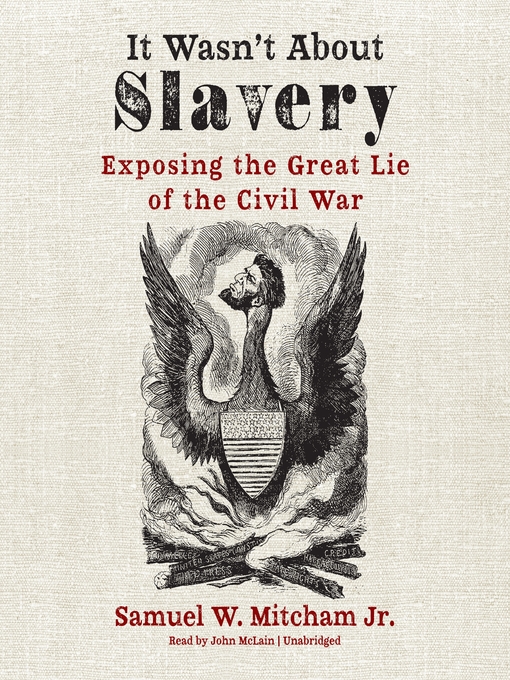
It Wasn’t About Slavery: Exposing the Great Lie of the Civil War
by Samuel W. Mitchum Jr. (2020)
If you think the Civil War was fought to end slavery, you’ve been duped. The real cause of the war was a dispute over money and self-determination. Lincoln was unprepared when the Southern states seceded, and force was the only way to bring them—and their tariff money—back. That was the real cause of the war. A well-documented and compelling read by a master historian, It Wasn’t About Slavery will change the way you think about Abraham Lincoln, the Emancipation Proclamation, and the cause and legacy of America’s momentous Civil War.
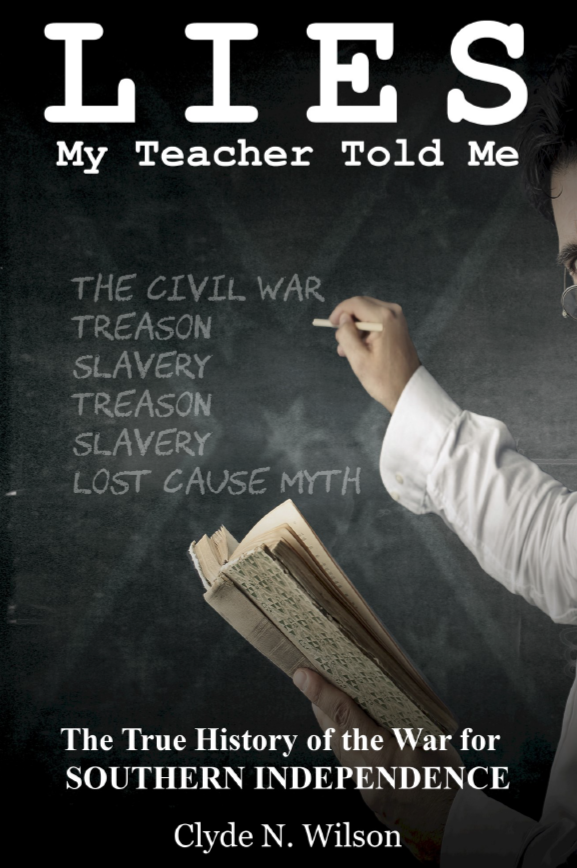
Lies My Teacher Told Me: The True History of the War for Southern Independence
by Clyde N. Wilson (2016)
In this hard-hitting collection of 4 essays, Dr Wilson cuts straight to the chase: YOU WERE LIED TO! The entire South—its people, culture, history, customs, both past and present—has been and continues to be lied about and demonized by the unholy trinity of the American establishment: Academia, Hollywood, and the Media. In the midst of the anti-South hysteria currently infecting the American psyche, Shotwell Publishing offers this unapologetic, unreconstructed, pro-South book with the hope that it will reach those who are not afraid to question the sanity of this cultural purge and the veracity of its narrative concerning the South.
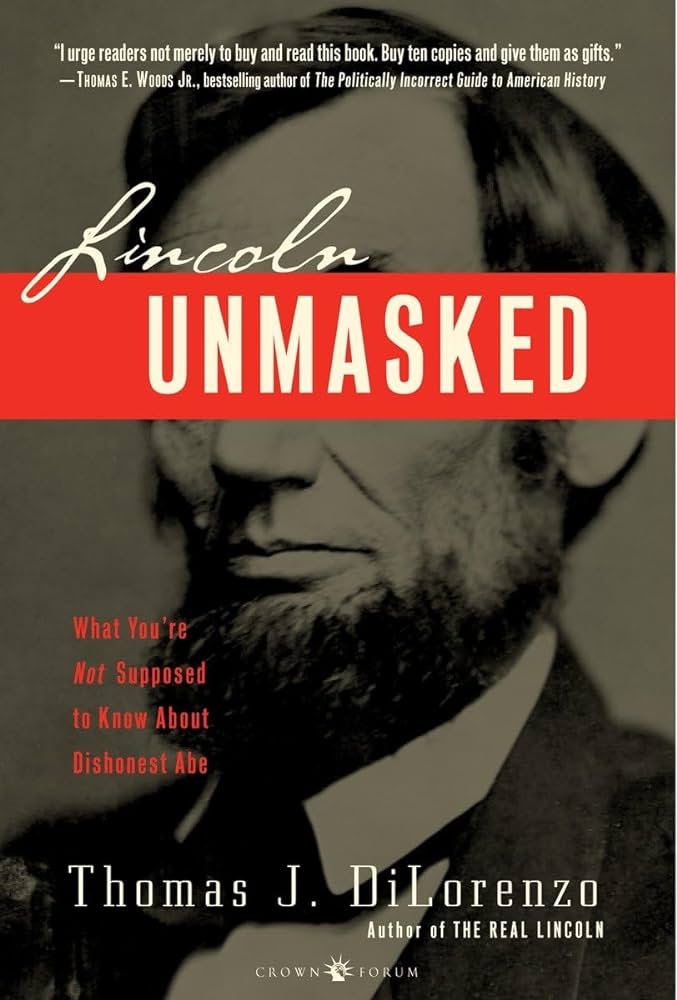
Lincoln Unmasked: What You’re Not Supposed to Know About Dishonest Abe
by Thomas J. DiLorenzo (2006)
Thomas J. DiLorenzo, who ignited a fierce debate about Lincoln’s legacy with his book The Real Lincoln, now presents a litany of stunning new revelations that explode the most enduring (and pernicious) myths about our sixteenth president. Marshaling an astonishing amount of new evidence, Lincoln Unmasked offers an alarming portrait of a political manipulator and opportunist who bears little resemblance to the heroic, stoic, and principled figure of mainstream history.
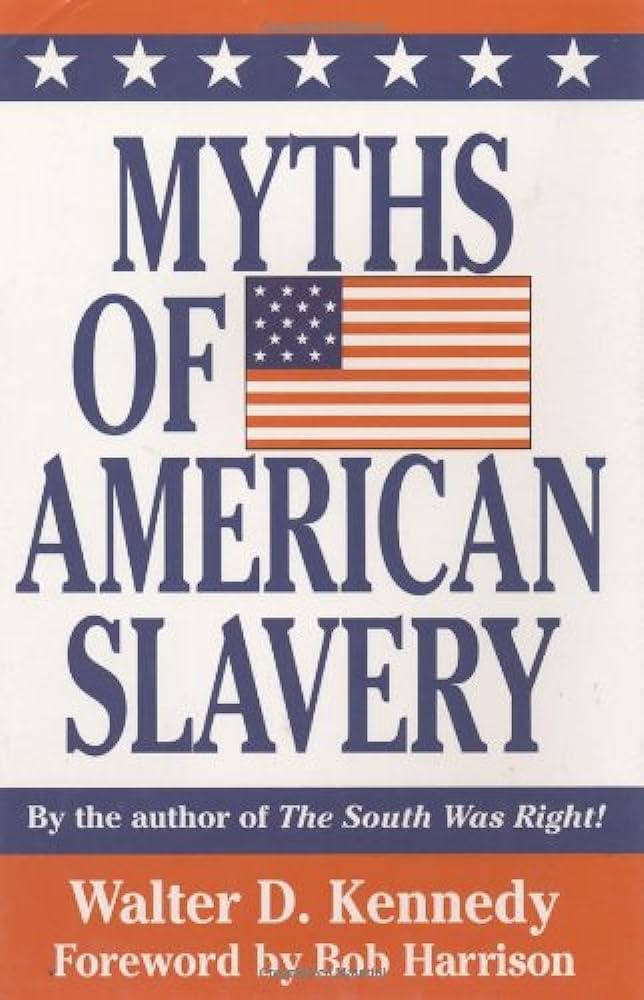
by Walter D. Kennedy (2003)
The average American today has only a superficial knowledge about the subject of slavery. For most modern Americans, slavery was (and is) a “Southern” problem. In fostering this official view of the institution of slavery in America, the victors have subverted the truth into a myth. If you are intellectually courageous enough to be open-minded, you will come away from this work with a more complete understanding of the institution of slavery in America. Be assured that you will not be transformed into a defender of slavery, but will join the ranks of some of America’s most prominent leaders who advocated the end of slavery while defending the truth about American and Southern history. Yes indeed, the truth will set you free.
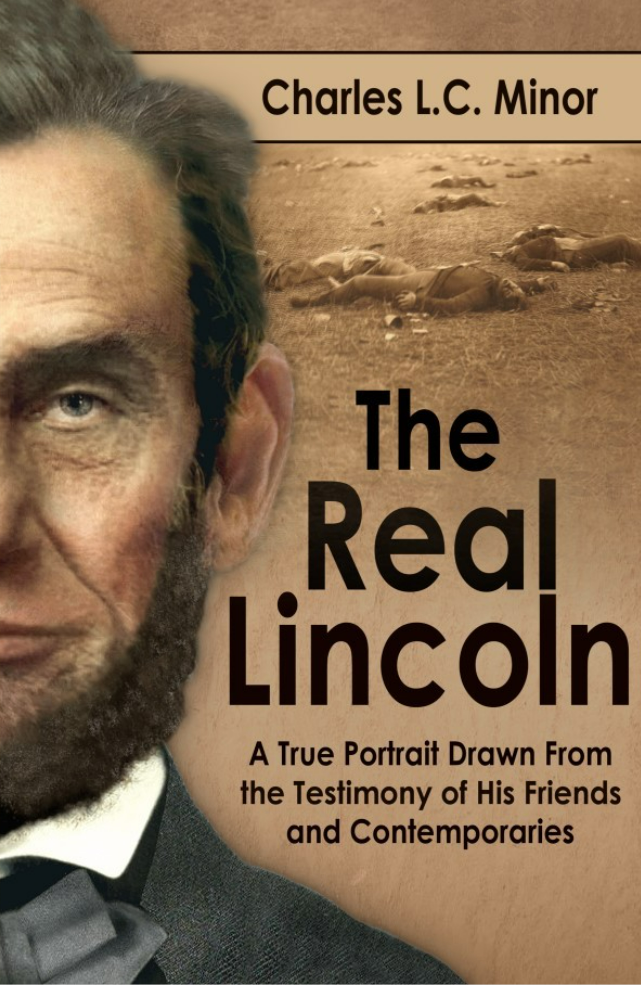
The Real Lincoln: A True Portrait Drawn from the Testimony of His Friends and Contemporaries
by Charles L.C. Minor (1901)
Who was Lincoln? — the ” liberator” who set free slaves that did not belong to him in order to injure a people over whom he had no sort of jurisdiction? — the “saviour of the Union” who called armies into action to force a confederacy of States back into a federation they had abjured? He was in truth the Constitution breaker, the violator of solemn political obligations, and the prime agent in a gigantic act of robbery and confiscation. To justify themselves, the Northern people glorify Lincoln, set a nimbus about his head, crown him with bays as their protagonist in the drama by which the great crime of the century was consummated — the suppression of Southern independence.
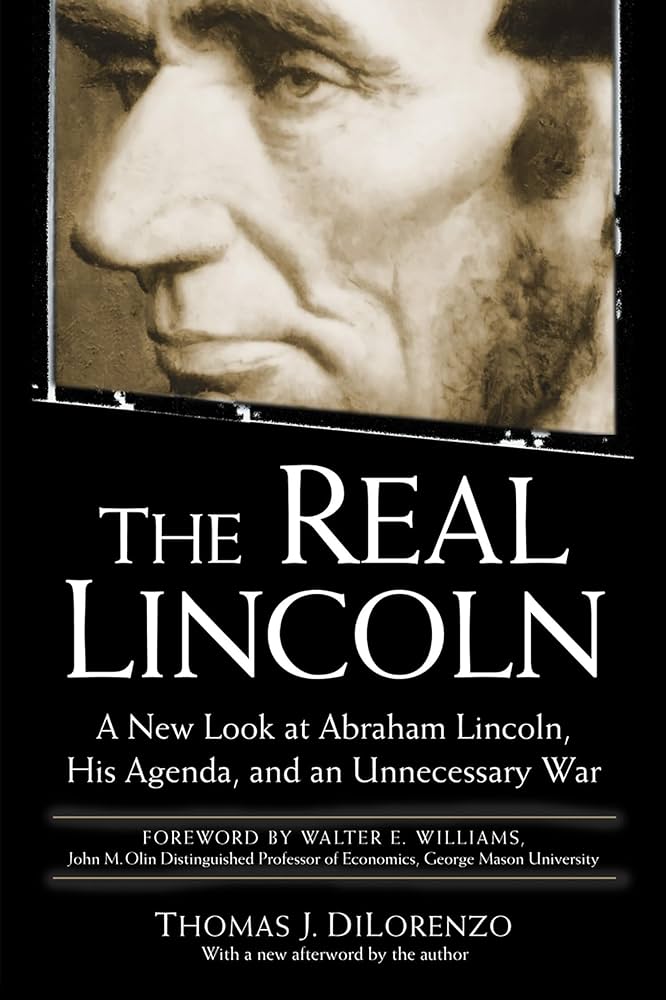
The Real Lincoln: A New Look at Abraham Lincoln, His Agenda, and an Unnecessary War
by Thomas J. DiLorenzo (2002)
Through extensive research and meticulous documentation, DiLorenzo portrays the 16th president as a man who devoted his political career to revolutionizing the American form of government from one that was very limited in scope and highly decentralized—as the Founding Fathers intended—to a highly centralized, activist state. To accomplish his goals, Lincoln subverted the Constitution, trampled states’ rights, and launched a devastating Civil War, from which 600,000 American soldiers died, not for the honorable cause of ending slavery but for the dubious agenda of sacrificing the independence of the states to the supremacy of the federal government, which has been tightening its vise grip on our republic to this very day.
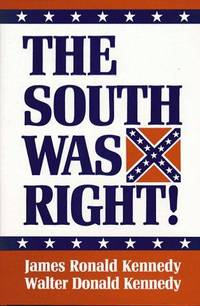
by James Ronald & Walter Donald Kennedy (1991)
Much of Civil War history is untrue because like most history, it is written by the victor. The story we hear is that hundreds of thousands of Southern men went to war over an issue that only affected six percent of the population. Read this book and learn the truth: there was no shining Northern force fighting a moral battle for the sake of ending slavery; there was no oppressive Southern force fighting to preserve it; and after the South declared its independence, the Union ruthlessly invaded, leaving Southerners no choice but to defend themselves.
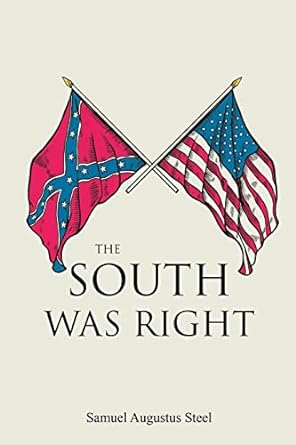
by Samuel Augustus Steel (1914)
Napoleon defined history as “fiction agreed upon”. It’s written by victors and often one-sided. This book tells a story from the other side. It shakes the foundation of everything you’ve been taught about the American “Civil War”. To begin with, Samuel Steel explains why the phrase “Civil War” is misleading and gives the struggle an appropriate name. He argues that the seceded states were exercising their constitutional rights, and that the real reason behind war was not, as most people believe, slavery. He paints a realistic picture of Southerners at the time, intelligent human beings who fought on principle, not semi-barbarians who owned slaves.

Southern Independence. Why War? The War to Prevent Southern Independence
by Charles T. Pace (2015)
Two of Pace’s key sources came from the writings of Lincoln’s law partners, William Herndon and Ward Lamon, who knew him well and participated in Lincoln’s political life. William Herndon’s account of Lincoln was remarkably candid and thus an extremely useful tool for distinguishing between truth and propaganda on the War’s chief underlying causes and purpose. Pace also uncovers many important sources and information that the highly politicized bastions of modern academia prefer to ignore or treat with un-investigated nonchalant dismissal. Much of the currently popular and politically correct narrative of the Civil War is blatantly false. This book will open your eyes to the full truth.
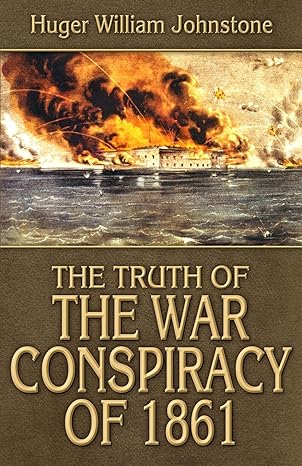
The Truth of the War Conspiracy of 1861
by H.W. Johnstone (1921)
In the early months of 1861, the Northern people were overwhelmingly opposed to military coercion of the seceded Southern States. Such was the general feeling when Abraham Lincoln took office, assuring the public of his pacific intentions in his first inaugural address. However, as the author of this little book proves from the U.S. Government’s own official records, while the Confederate Peace Commissioners were being stalled in Washington with promises of the evacuation of troops from Fort Sumter in Charleston Harbor, Lincoln was secretly working behind the scenes to reinforce the fort in order to force the South to fire the first shot and thus “put the rebellion in the wrong.”
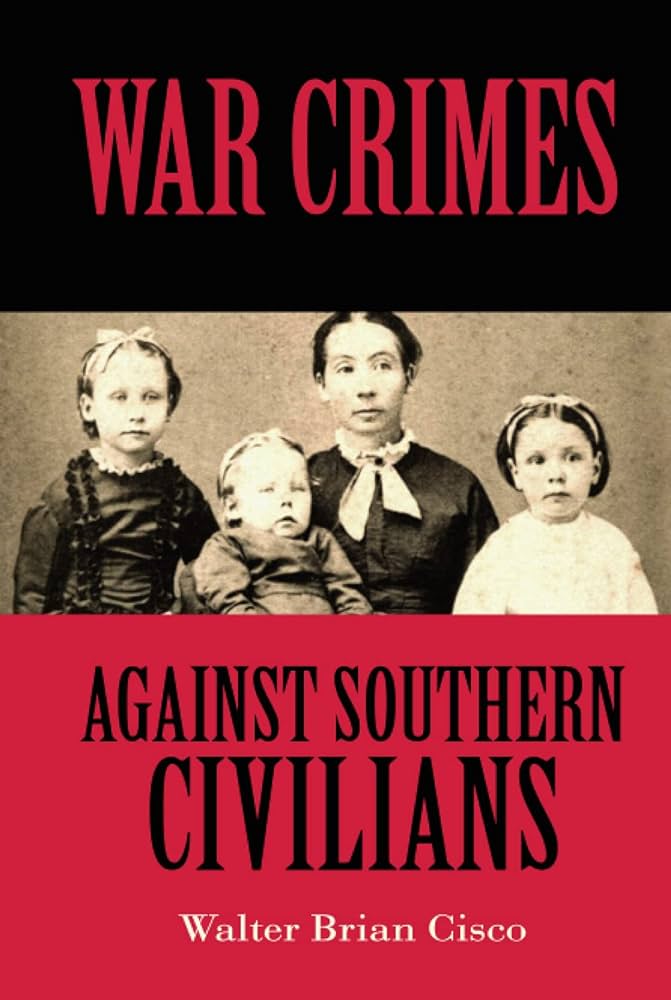
War Crimes Against Southern Civilians
by Walter Brian Cisco (2007)
This is the untold story of the Union’s “hard war” against the people of the Confederacy. Styled the “Black Flag” campaign, it was agreed to by Lincoln in a council with his generals in 1864. Cisco reveals the shelling and burning of cities, systematic destruction of entire districts, mass arrests, forced expulsions, wholesale plundering of personal property, and even murder of civilians. Carefully researched largely from primary sources, this examination also gives full attention to the suffering of black victims of Federal brutality.